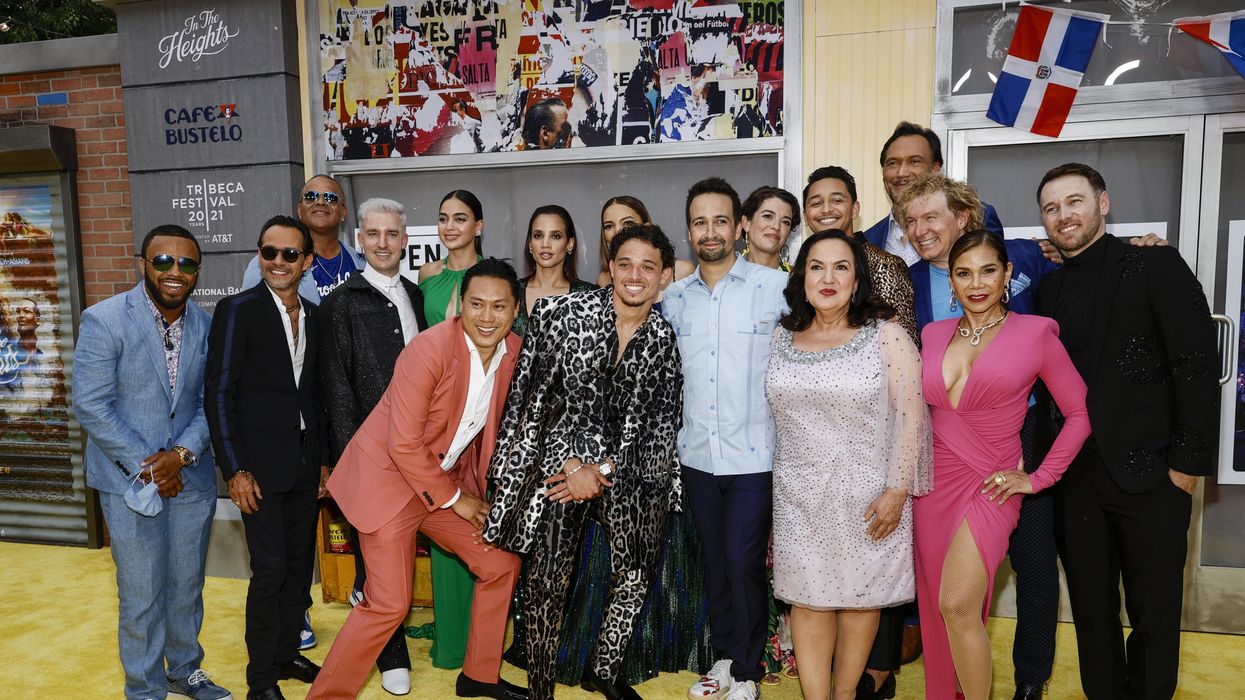
Photo by Jamie McCarthy/Getty Images for Tribeca Festival

Lin-Manuel Miranda, award-winning Broadway producer, writer, and composer, has issued an apology for "colorism" after critics attacked his new musical, "In the Heights," for not featuring more diverse actors.
The production — which is now in U.S. theaters and is streaming on HBO Max — is based on a tight-knit, largely Latino New York City neighborhood, Washington Heights, where Miranda grew up.
In a lengthy Monday statement, the Broadway producer admitted that he "fell short" in "trying to paint a mosaic of this community."
The 41-year-old wrote, "I started writing In The Heights because I didn't feel seen. And over the past 20 years all I wanted was for us — ALL of us — to feel seen. I'm seeing the discussion around Afro-Latino representation in our film this weekend and it is clear that many in our dark-skinned Afro-Latino community don't feel sufficiently represented within it, particularly among the leading roles."
"I can hear the hurt and frustration over colorism, over feeling unseen in the feedback," he added. "I hear that without sufficient dark-skinned Afro-Latino representation, the work feels extractive of the community we wanted so much to represent with pride and joy."
Miranda noted that he is "truly sorry" and is "learning from the feedback."
"I thank you for raising it, and I'm listening," his apology continued. "I'm trying to hold space for both the incredible pride in the movie we made and be accountable for our shortcomings. Thanks for your honest feedback. I promise to do better in my future projects, and I'ms dedicated to the learning and evolving we all have to do to make sure we are honoring our diverse and vibrant community."
-LMMpic.twitter.com/CHfdLgFUz3— Lin-Manuel Miranda (@Lin-Manuel Miranda) 1623709464
Ahead of the musical's premiere, director Jon M. Chu and two of its main characters — actresses Melissa Barrera and Leslie Grace — discussed colorism and a "lack of Afro-Latino actors in leading roles" during an interview with The Root's Felice Léon.
According to People, Léon asked Chu, Barrera, and Grace about the "lack of Black Latinx people represented in the film," considering the cast mainly appeared to be "light-skinned or white-passing Latinx people."
Chu responded, "Yeah, I mean I think that that was something we talked about and I needed to be educated about, of course. In the end, when we were looking at the cast, we were trying to get the people who were best for those roles and that specifically, and we saw a lot of people, people like [actresses] Daphne [Rubin-Vega], or Dascha [Polanco]."
He added, "But I hear you on trying to fill those cast members with darker-skinned [actors]. I think that's a really good conversation to have, something that we should all be talking about."
Barrera pointed out, "I think it's important to note, though, that in the audition process — which was a long audition process — there were a lot of Afro-Latinos there. A lot of darker skinned people, and I think they were looking for just the right people for the roles, for the person that embodied each character to the fullest extent. And I think we are all very much like our characters, so much so that a lot of times it didn't even feel like we were acting, they just kind of let us live in there. And because the cast ended up being us, Washington Heights is a melting pot of Black and Latinx people, Jon and Lin wanted the dancers and the big numbers to feel very truthful to what the community looks like."
Grace chimed in, "I didn't realize until making this movie that I didn't really get to see myself or people that look like my siblings that are darker than me on screen."
"I didn't realize how much that affected the limitations I put on myself, being someone who wanted to be an artist and be an actress and even be in the Latin music industry, being Afro-Latina," she added. "I feel so blessed that I get to express the diversity that is within the Latinx community in a way that we haven't been able to see onscreen because so many times we're put on screen in one particular way, and since we get so little opportunities, everyone wants to claim that one story because it's all we got."
Grace added, "I hope that this is cracking that glass ceiling. Because I do hope to see my brothers and sisters that are darker than me lead these movies."